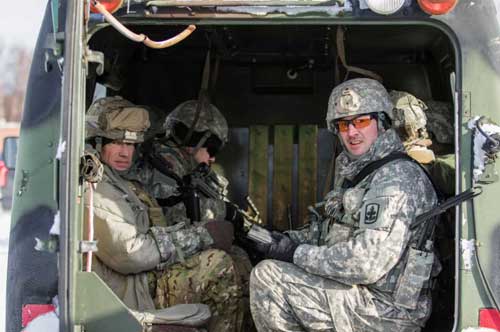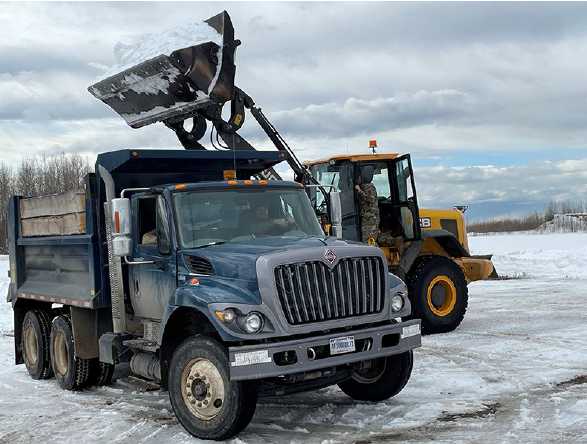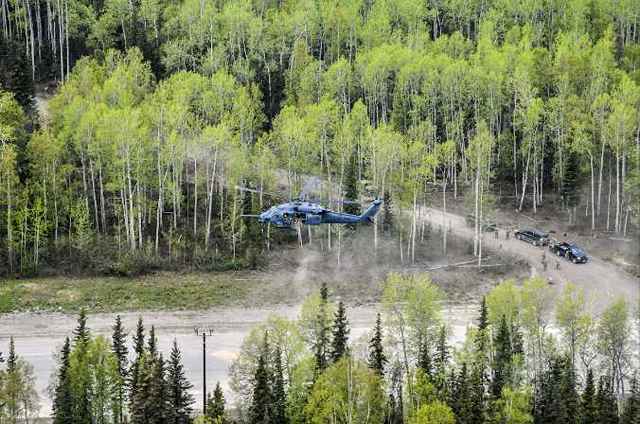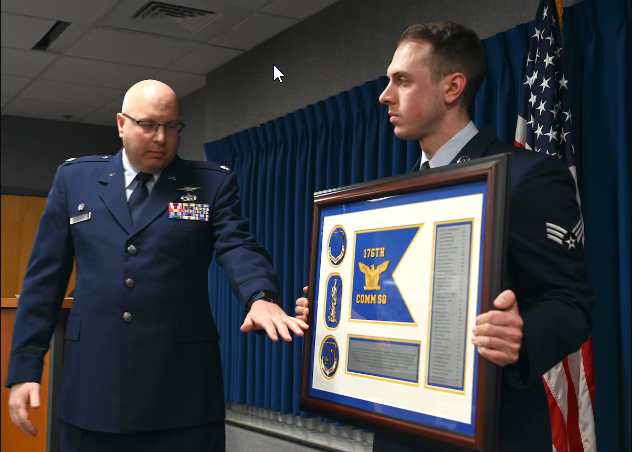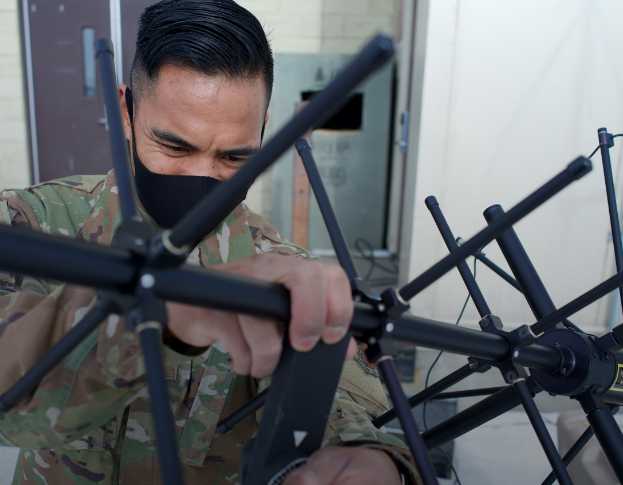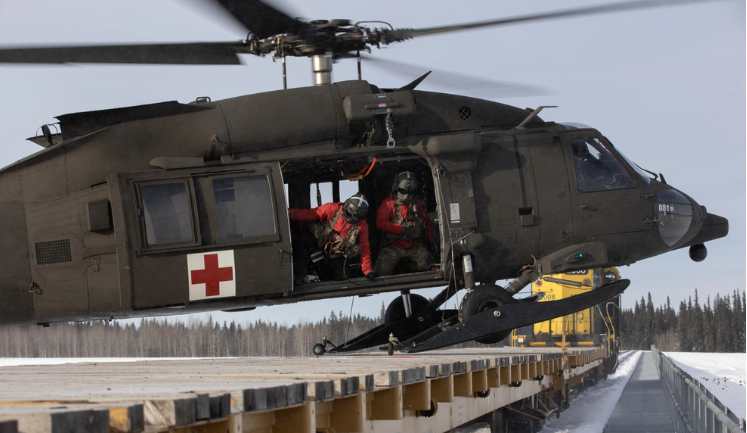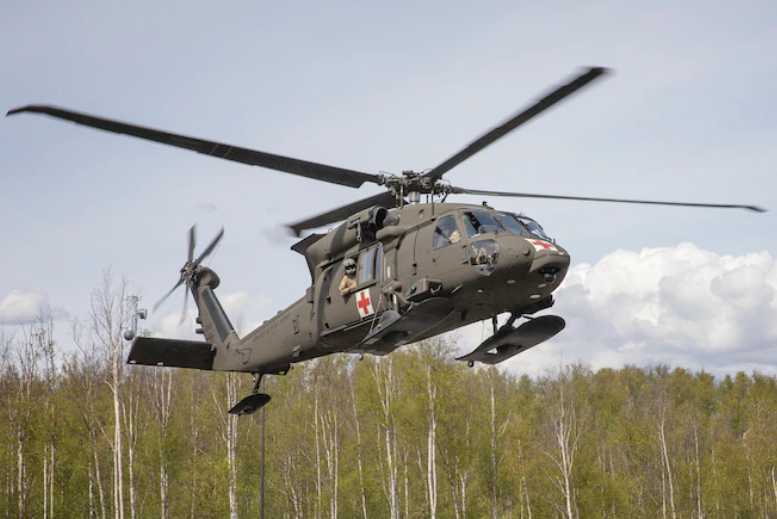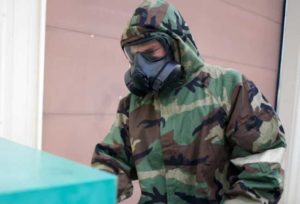
JOINT BASE ELMENDORF-RICHARDSON, Alaska — Airmen of the 176th Civil Engineer Squadron conducted Task Qualification Training while in full chemical protective gear during a readiness exercise Oct. 24 here.
The tasks that civil engineer Airmen accomplish are vital to maintaining the infrastructure and readiness of the entire 176th Wing.
By training in a simulated environment in full Mission Oriented Protective Posture gear, Airmen get valuable experience on how to operate in a hostile environment. The equipment is designed to protect the wearer from chemical, biological, radiological, and nuclear hazards but is not optimal for performing a large range of tasks.
Through this training Airmen gain valuable feedback on how to accomplish tasks as well as what processes should be changed to make the tasks possible.
“We have an overarching scenario event list and objectives with measures that will be graded,” said Lt. Col. Eric Manewal, 176th Wing director of inspections. “We’ve turned this from grading an event into an exercise by having all of this tied together under a scenario with all the exercise elements present.”
Headquarters Air Force specified a total of 46 tasks across the civil engineer career field be completed in MOPP gear. By consolidating these tasks into an exercise, the squadron saves thousands of man-hours and increase the quality of feedback to HAF.
“Our core tasks for civil engineering are important, so we need to know how to operate and do these things in chem gear,” said Senior Master Sgt. Michael Keegan, 176th CES chief enlisted manager. “Rather than just putting this stuff on and completing tasks, we built an exercise out of it. This small task force will have a big impact on the rest of the wing. The better we do to nail this program, the more prepared we are in the event of a CBRN attack.”
During the exercise Airmen put on their gear and completed core tasks while an inspection team member monitored their progress.
Due to the hazardous nature of completing certain CE tasks while wearing MOPP gear, some scenarios stimulated input from participants about how to improve safety. By conducting exercises, the Emergency Management Flight can identify conflicts in safety guidance, which it can relay to HAF.
The 176th CES/EMF completed the first batch of tasks during August and will continue completing tasks throughout the coming year including during the next super drill.
###[content id=”79272″]

